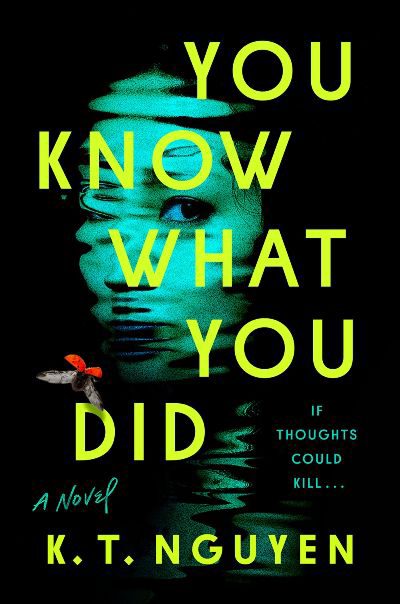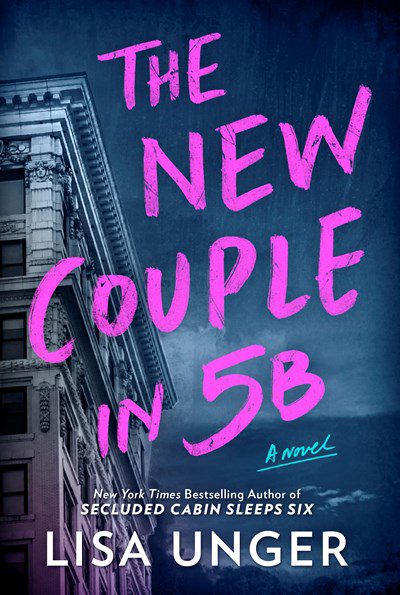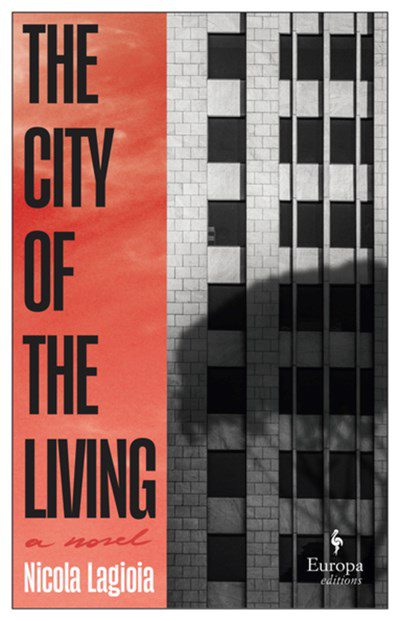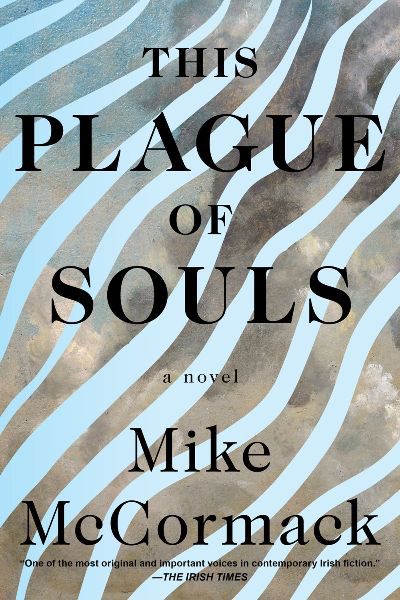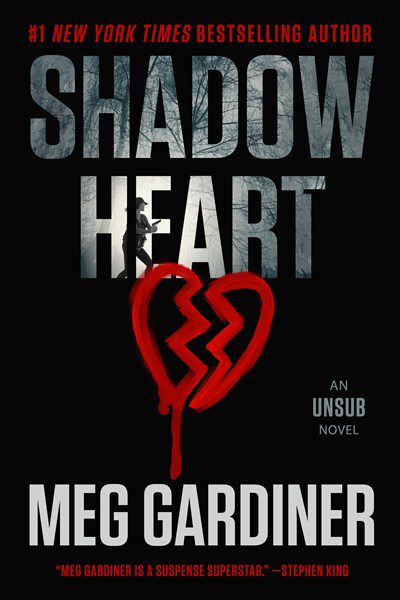“Her mother’s approval was everything, her rejection absolute annihilation.” A daily does of annihilation is Anh Le’s lot as the child of a Vietnamese immigrant mother who is “from the ‘I criticize because I care’ culture.” Today, Mẹ, the mother, lives in the carriage house next to her artist daughter, now called Annie, who’s married with a sullen teen daughter, whom Mẹ calls a whore. After Annie finds Mẹ dead, things start to get even more difficult. Despite her OCD related to cleanliness, Annie must clean out the carriage house where her mother refused to throw out anything, even rotten food. At the same time, she takes on a new commission for her local benefactor, an elderly lady who doesn’t acknowledge Mẹ’s death (“China dolls needn’t have troublesome backstories”) and who promptly goes missing. At first, the police refuse to believe there’s any issue, but as further crimes come to light, they and Annie herself, who’s once again crippled by her compulsions, begin to wonder if she’s to blame. Nguyen delves deep into the trauma caused by war and the generations-spanning destruction it can unleash, but anyone who grew up feeling othered will recognize themselves here. A debut to remember, and what a gripping ending.
Psychological
Though there’s a year between them, sisters Crissy and Betsy Dowling are so alike they could be twins. And they don’t only resemble each other, they also look very like one Diana Spencer, the late, lamented Princess of Wales. The resemblance is so strong that Crissy performs as Di in a long-running Las Vegas residency. The casino that hosts the emotional cabaret, the Buckingham Palace, or BP, has seen better days, as has Crissy’s relationship with her lookalike sister. Crissy claims that Betsy killed their mother, the circumstances around that a mystery for most of the book. But that doesn’t stop Betsy from re-entering her sister’s life by leaving her social worker job for her new boyfriend’s cryptocurrency firm that’s setting up shop in Vegas. When the owner of the BP is found dead, and Crissy doesn’t believe the police’s finding that it’s a suicide, it starts a chain of subterfuge and violence that makes the sort-of-royals wish that what happens in Vegas didn’t involve them. Bohjalian has intriguingly veered into a much more noir path than his usual, with the darkness complimenting his typical tight plotting and absorbing family drama. This is one for fans of campy fare mixed with family shenanigans and of Elle Cosimano’s Finlay Donovan.
New Yorker Billie has never wanted children. But the series of hurts chronicled over the course of this frenemies story find her standing in the apartment below her former best friend, Cassie’s, place, holding Cassie’s baby while her friend upstairs wails that there’s been a kidnapping. Most of this absorbing tale takes place in the present, when lonely Billie tries over and over to regain the closeness she had with Cassie when they were teens. But Cassie, who’s now a famous Instagram mommy, wants little to do with her. We also flash back to those teen years, when a incident involving Billie’s stepfather, whose sexual abuse of the girl is graphically described, has been kept a secret by Billie and Cassie, leaving them emotionally tied but perhaps also causing their estrangement. As in her Can’t Look Away (2022), Lovering nails the bizarreness of obsessive love—Billie’s for Cassie and Cassie’s for Internet fame—and its twisted outcomes. This book will be a hit with fans of that previous work as well as of Ian McEwan’s Enduring Love.
Everything is creepy about the Windermere, a ritzy, historic New York City apartment building with Rosemary‘s Baby vibes to spare. But at first, Rosie, an author; and Chad, her husband and an aspiring actor, hardly notice. They’re too busy taking care of one of the residents, Chad’s uncle, who has died as the book opens, and who leaves the apartment to the broke young couple—and not his own daughter. Why? And while the residents couldn’t be more welcoming, Rosie—who’s writing a book about the history of the Windermere, focusing especially on the many murders—can’t contain her suspicions. What’s up with the doorman, who seemingly works around the clock? And the child she would swear she saw crouching in the basement? Why are there cameras absolutely everywhere? And, most importantly, why is Chad acting so weird, disappearing for huge stretches of time? Unger’s novels are textbook examples of perfect suspense fiction, and this title is no different. As we race through the narrative, we watch in terror as “something dark is on the horizon” becomes something dark that is right next to you. And we are helpless to stop it. Love New York? Then this super accurate portrayal of the City is doubly fun.
This fast-paced debut takes on the world of biotechnology, focusing more on the attendant politics and celebrity than the tech itself. The celebrity in question is Professor Sarah Collier, who’s retired after winning a Nobel Prize. She’s so reclusive that she didn’t even pick up her Nobel in person, but her husband is desperate for her to get back out there and help his faltering neuroscience career. He’s increasingly frustrated by her unwillingness to travel with him to Geneva, where a mysterious new technology will be unveiled at the Schiller Institute, with, the institute hopes, Sarah’s endorsement. The promise that the new technology could help Sarah’s newly diagnosed Alzheimer’s makes the endorsement tempting, but steely pressure from the institute’s directors and its frightening head of security is exhausting. As Sarah becomes ever more forgetful and disoriented, the risks to her marriage and even her life multiply while the billions of dollars on the line make malevolent forces ruthless. For fans of actor-author Armitage and of John Marr’s biotech-infused thrillers.
Elizabeth is in a rut. Her job isn’t so satisfying, and her marriage is on the rocks. Her every move seems to trigger a report by her husband, David, to their therapist. She feels ganged up on and adrift, which is bad enough. That descends into depression, which others believe is paranoia, when she finds her neighbor Patricia dead. Others say it’s suicide, but Elizabeth is sure it was murder and is determined to find the culprit. She has a willing sidekick in her sleuthing in Brianna, the assistant that David insists his wife take on to help out at home. Brianna, who is Black, is all too willing to be white Elizabeth’s new best friend, Watson to her Sherlock, and de facto therapist, given that Brianna has a strong motivation to insert herself into her employers’ upscale Memphis neighborhood: someone there called the cops on her son and they killed him. As the plot twists and turns, deceptions build, and though readers have the benefit of a birds’ eye view of the story, surprises are in store. This is reminiscent of Elizabeth Day’s Magpie, with its suburban setting and overcrowded marriage; the effects of gentrification and racism also loom large. For fans of Magpie Murders and novels that pack in the psychological drama.
A superb novel of suspense that alternates between the terrifying present and the complex past that led up to this moment. A woman, sleeping near her two young children in a Colonial home in Massachusetts town, hears what she thinks are footsteps. Could there be anything scarier? Except this is an old house, always creaking. Perhaps it’s her imagination. Then, thanks to the nightlight, she sees a man, a huge man, slowly climbing the stairs, as “his fingers wrap the banister like white spider legs.” What should she do? A blizzard rages outside, making escape impossible. Then she remembers that the house has a tiny, hidden room, and she hustles the children and herself into it, while still worrying how they will be able to survive. Sierra keeps the adrenaline pumping, but takes breaks from the primary narrative to explore the woman’s life, from a less than happy marriage to an abusive relationship with her father-in-law to a patriarchal society that refuses to believe her. This unique, thinking-person’s thriller would be great for a book discussion, there’s so much here to unpack.
A deep, dark descent into one of Italy’s most disturbing true crimes, drawing on actual documents, news reports, and interviews to tell the story. Billed by the publisher as a “spellbinding literary thriller”—it’s certainly spellbinding, but no one’s definition of a thriller—this is a slow, methodical, layered journey into the murder of 23-year-old Luca Varani. The method? Torture. The perpetrators? Manuel Foffo, who confesses to his father, while driving to a family funeral, that he killed someone—three, four, five days ago?—he’s too drugged out to know. And Marco Prato, also from a “good family,” a nightclub promoter, gay and considering transitioning. Manuel and Marco barely know each other, although after several drug-and-alcohol fueled days holed up in Manuel’s apartment they develop an intimacy that’s somewhat sexual but more a twisted sort of friendship. “So-called psychic contagion, like a racing engine, brought the two young men close to the point of fusion.” What do they share, besides a love of drugs and alcohol? For starters, an inability to mature, jealousy of the rich, and complete irresponsibility. Lagioia intertwines the descent of Manuel and Marco with the descent of Rome itself—drug filled, rat-infested, garbage strewn, home to wild animals, yet ultimately, he claims, freeing. This story begs for comparison with the Nathan Leopold and Richard Loeb murder of Bobby Franks in 1924 Chicago. Brilliantly translated.
This dark, introspective work, which unexpectedly reveals a golden-hued motivation on the part of its main character, reads like Scandinavian noir. But this gem is by an Irish author and follows his Booker Prize-longlisted Solar Bones. McCormack brings us to the west of Ireland, home of Nealon, a man returning from prison, though at first all we know is that he’s been away. He finds his home unexpectedly empty, the electricity switched off, and his wife and child gone. Right away, he gets a call from a stranger who, in a tone so jaunty it’s sinister, congratulates Nealon on his homecoming and offers to tell him where his family is in return for a meeting. As Nealon whiles away the days—after firmly declining the meeting—in a strange limbo, contact with the stranger continues and the former prisoner finds that the motivations for his crime may come to light. West of Ireland weather sets the tone, as “a huge, bruised cloud moves across the sky, with leaden sheets of rain peeling from its underbelly.” But it’s the anonymous, yet intimate, comments from the needling stranger that keep the writing on its toes and Nealon facing “a massive cessation of all that passes for the run of things.” For fans of Donal Ryan and David Malouf.
Gardiner shakes up the serial-killer genre with her latest thriller. FBI profiler Caitlin Hendrix visits serial killer Efrem Judah Goode in prison. He shows her detailed drawings of the women he has killed, but none of them are the victims he’s incarcerated for killing. He claims innocence for those women’s murders but is not innocent of being a murderer. There is a copycat called the Broken Heart Killer, and somehow Goode and this UNSUB are connected. Caitlin dives into the case and will once again put her career and life on the line for justice, while bringing closure to the families of the women Goode killed. What she uncovers will surprise even the most jaded reader. Gardiner has a gift for tackling gruesome and uncomfortable topics and giving the prose a literary spin. While other authors might wallow in the ugly, Gardiner makes it beautiful. Fans of true crime and the television show Criminal Minds should make Gardiner mandatory reading.

